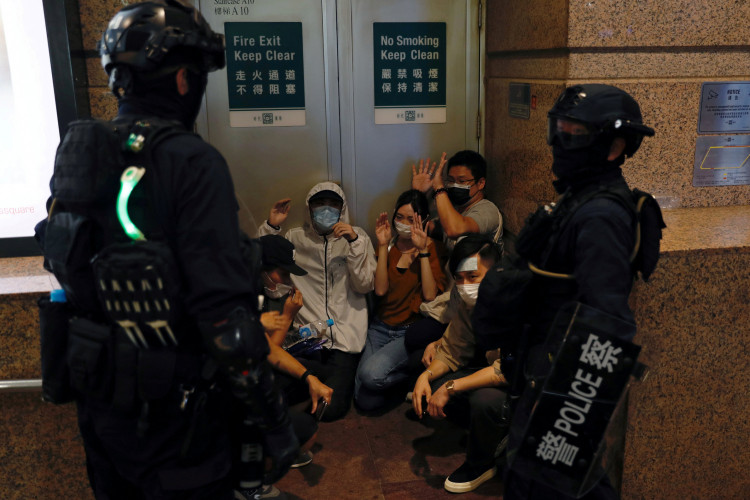Canada is accepting Hong Kong political activists as refugees after the country welcomed a young married couple involved in the city's pro-democracy movement.
A Toronto newspaper reported Canada's Immigration and Refugee Board accepted the couple in their mid-30s as "convention refugees" unable to return home "due to a well-founded fear of persecution based on race, religion (and) political opinion" among others.
Canada immigration lawyer Richard Kurland likened the case to a "starter's gun." He predicts a flood of asylum applications from Hong Kong citizens.
"By implication, [Canada] has put the Hong Kong judicial system into disrepute," Kurland told the Globe and Mail newspaper. "The person has no internal flight alternative and cannot reasonably rely upon Hong Kong's judicial structure for protection."
On June 30, China imposed a national security law on Hong Kong that criminalizes secession and subversion as well as collusion with foreign forces, among other things. While China says the law restores order to the city, critics say it curtails freedom of speech.
Expressing "grave concern" at the passage of the law, Canada's Prime Minister Justin Trudeau said in July that "in the days and weeks to come, we are looking at additional measures including immigration."
The breadth and scope of the security law, applicable to offences outside Hong Kong as well as within, sounded warning bells for pro-democracy activists in the region who fear serious repercussions for their nonviolent protests, critics say.
"What I now face is far greater than my own gains and losses, [and] the price of displacement is what I'm willing to pay," ousted Hong Kong politician Nathan Law said on Twitter after being forced to flee following the law.
Anywhere But Here
Opposition politicians and pro-democracy activists are not the only ones considering leaving the city for good. More than four in 10 Hong Kong residents are willing to leave if given the opportunity, a September phone survey conducted by the Chinese University of Hong Kong found. And, 43.9% of those polled said it was inclined to move overseas. Of these, 35% had already started making plans.
This is owing in part to a decline in the city's livability index - which is part of the university's survey and measures residents' ease and enjoyment in Hong Kong. The average score has been dropping over the years and hit 49.6 out of 100 this year from 54.4 in 2019.
The UK, Australia and Taiwan are the most popular destinations for relocation among residents surveyed at 23.8%, 11.6% and 10.7%, respectively.





